| Listing 1 - 10 of 16 | << page >> |
Sort by
|
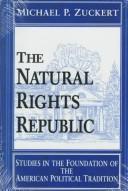
ISBN: 0268014809 Year: 1997 Publisher: Notre Dame University of Notre Dame press
Abstract | Keywords | Export | Availability | Bookmark
 Loading...
Loading...Choose an application
- Reference Manager
- EndNote
- RefWorks (Direct export to RefWorks)
Natural law --- Political science --- -Law of nature --- Natural rights --- Nature, Law of --- Rights, Natural --- Law --- Administration --- Civil government --- Commonwealth, The --- Government --- Political theory --- Political thought --- Politics --- Science, Political --- Social sciences --- State, The --- History --- United States --- Politics and government. --- History, Political --- Politics and government --- Law of nature (Law) --- Nature, Law of (Law)
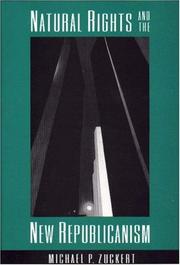
ISBN: 069103463X 0691059705 128313327X 1400808995 1400809010 1400813999 1400821525 9786613133274 Year: 1994 Publisher: Princeton (N.J.): Princeton university press
Abstract | Keywords | Export | Availability | Bookmark
 Loading...
Loading...Choose an application
- Reference Manager
- EndNote
- RefWorks (Direct export to RefWorks)
In Natural Rights and the New Republicanism, Michael Zuckert proposes a new view of the political philosophy that lay behind the founding of the United States. In a book that will interest political scientists, historians, and philosophers, Zuckert looks at the Whig or opposition tradition as it developed in England. He argues that there were, in fact, three opposition traditions: Protestant, Grotian, and Lockean. Before the English Civil War the opposition was inspired by the effort to find the "one true Protestant politics--an effort that was seen to be a failure by the end of the Interregnum period. The Restoration saw the emergence of the Whigs, who sought a way to ground politics free from the sectarian theological-scriptural conflicts of the previous period. The Whigs were particularly influenced by the Dutch natural law philosopher Hugo Grotius. However, as Zuckert shows, by the mid-eighteenth century John Locke had replaced Grotius as the philosopher of the Whigs. Zuckert's analysis concludes with a penetrating examination of John Trenchard and Thomas Gordon, the English "Cato," who, he argues, brought together Lockean political philosophy and pre-existing Whig political science into a new and powerful synthesis. Although it has been misleadingly presented as a separate "classical republican" tradition in recent scholarly discussions, it is this "new republicanism" that served as the philosophical point of departure for the founders of the American republic.
Natural law --- Republicanism --- Locke, John --- Political science --- History --- 17th century --- 18th century --- Administration --- Civil government --- Commonwealth, The --- Government --- Political theory --- Political thought --- Politics --- Science, Political --- Social sciences --- State, The --- Law of nature (Law) --- Natural rights --- Nature, Law of (Law) --- Rights, Natural --- Law --- Philanthropus, --- Lokk, Dzhon, --- Lūk, Jūn, --- Lo-kʻo, --- Locke, Giovanni, --- Lock, --- Lock, John, --- Rokku, Jon, --- לוק, י׳ון, --- Natural law. --- Republicanism. --- Locke, John,

ISBN: 1400813999 128313327X 9786613133274 1400821525 9781400821525 9781400813995 069103463X 9780691034638 9781283133272 6613133272 1400809010 1400808995 Year: 2011 Publisher: Princeton, NJ
Abstract | Keywords | Export | Availability | Bookmark
 Loading...
Loading...Choose an application
- Reference Manager
- EndNote
- RefWorks (Direct export to RefWorks)
In Natural Rights and the New Republicanism, Michael Zuckert proposes a new view of the political philosophy that lay behind the founding of the United States. In a book that will interest political scientists, historians, and philosophers, Zuckert looks at the Whig or opposition tradition as it developed in England. He argues that there were, in fact, three opposition traditions: Protestant, Grotian, and Lockean. Before the English Civil War the opposition was inspired by the effort to find the "one true Protestant politics--an effort that was seen to be a failure by the end of the Interregnum period. The Restoration saw the emergence of the Whigs, who sought a way to ground politics free from the sectarian theological-scriptural conflicts of the previous period. The Whigs were particularly influenced by the Dutch natural law philosopher Hugo Grotius. However, as Zuckert shows, by the mid-eighteenth century John Locke had replaced Grotius as the philosopher of the Whigs. Zuckert's analysis concludes with a penetrating examination of John Trenchard and Thomas Gordon, the English "Cato," who, he argues, brought together Lockean political philosophy and pre-existing Whig political science into a new and powerful synthesis. Although it has been misleadingly presented as a separate "classical republican" tradition in recent scholarly discussions, it is this "new republicanism" that served as the philosophical point of departure for the founders of the American republic.
Political science --- Republicanism. --- Natural law. --- Administration --- Civil government --- Commonwealth, The --- Government --- Political theory --- Political thought --- Politics --- Science, Political --- Social sciences --- State, The --- Law of nature (Law) --- Natural rights --- Nature, Law of (Law) --- Rights, Natural --- Law --- History --- Locke, John, --- Locke, John --- Philanthropus, --- Lokk, Dzhon, --- Lūk, Jūn, --- Lo-kʻo, --- Locke, Giovanni, --- Lock, --- Lock, John, --- Rokku, Jon, --- לוק, י׳ון,
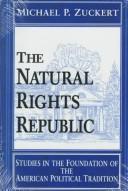
ISBN: 0268014876 Year: 1996 Publisher: Notre Dame (Ind.) : University of Notre Dame press,
Abstract | Keywords | Export | Availability | Bookmark
 Loading...
Loading...Choose an application
- Reference Manager
- EndNote
- RefWorks (Direct export to RefWorks)
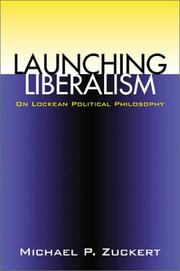
ISBN: 0700611746 Year: 2002 Publisher: Lawrence University press of Kansas
Abstract | Keywords | Export | Availability | Bookmark
 Loading...
Loading...Choose an application
- Reference Manager
- EndNote
- RefWorks (Direct export to RefWorks)
Liberalism --- Political science --- History --- Locke, John
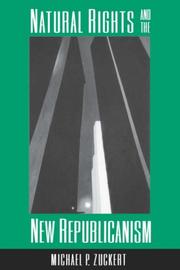
ISBN: 9781400821525 9780691059709 Year: 2011 Publisher: Princeton, N.J. Princeton University Press
Abstract | Keywords | Export | Availability | Bookmark
 Loading...
Loading...Choose an application
- Reference Manager
- EndNote
- RefWorks (Direct export to RefWorks)
Book
ISBN: 9780226135731 022613573X Year: 2014 Publisher: Chicago The University of Chicago Press
Abstract | Keywords | Export | Availability | Bookmark
 Loading...
Loading...Choose an application
- Reference Manager
- EndNote
- RefWorks (Direct export to RefWorks)
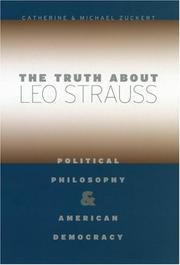
ISBN: 0226993329 9780226993324 Year: 2006 Publisher: Chicago (Ill.) University of Chicago press
Abstract | Keywords | Export | Availability | Bookmark
 Loading...
Loading...Choose an application
- Reference Manager
- EndNote
- RefWorks (Direct export to RefWorks)
Political science --- History. --- Philosophy. --- Strauss, Leo. --- Administration --- Civil government --- Commonwealth, The --- Government --- Political theory --- Political thought --- Politics --- Science, Political --- Social sciences --- State, The --- History --- Philosophy
Book
ISBN: 022613587X 9780226135878 9780226135731 Year: 2014 Publisher: Chicago University of Chicago Press
Abstract | Keywords | Export | Availability | Bookmark
 Loading...
Loading...Choose an application
- Reference Manager
- EndNote
- RefWorks (Direct export to RefWorks)
Leo Strauss and his alleged political influence regarding the Iraq War have in recent years been the subject of significant media attention, including stories in the Wall Street Journal and New York Times.Time magazine even called him "one of the most influential men in American politics." With The Truth about Leo Strauss, Michael and Catherine Zuckert challenged the many claims and speculations about this notoriously complex thinker. Now, with Leo Strauss and the Problem of Political Philosophy, they turn their attention to a searching and more comprehensive interpretation of Strauss's thought as a whole, using the many manifestations of the "problem of political philosophy" as their touchstone. For Strauss, political philosophy presented a "problem" to which there have been a variety of solutions proposed over the course of Western history. Strauss's work, they show, revolved around recovering-and restoring-political philosophy to its original Socratic form. Since positivism and historicism represented two intellectual currents that undermined the possibility of a Socratic political philosophy, the first part of the book is devoted to Strauss's critique of these two positions. Then, the authors explore Strauss's interpretation of the history of philosophy and both ancient and modern canonical political philosophers, including Plato, Aristotle, Machiavelli, and Locke. Strauss's often-unconventional readings of these philosophers, they argue, pointed to solutions to the problem of political philosophy. Finally, the authors examine Strauss's thought in the context of the twentieth century, when his chief interlocutors were Schmitt, Husserl, Heidegger, and Nietzsche. The most penetrating and capacious treatment of the political philosophy of this complex and often misunderstood thinker, from his early years to his last works, Leo Strauss and the Problem of Political Philosophy reveals Strauss's writings as an attempt to show that the distinctive characteristics of ancient and modern thought derive from different modes of solving the problem of political philosophy and reveal why he considered the ancient solution both philosophically and politically superior.
Political science --- Philosophy. --- Strauss, Leo --- Criticism and interpretation. --- iraq war, politics, political science, philosophy, positivism, historicism, locke, machiavelli, aristotle, plato, nietzsche, heidegger, husserl, schmitt, western civilization, modernity, law of nature, weimar, great books, nonfiction, history, lucretius, thucydides, socrates, skepticism, jerusalem, athens, marsilius padua, reason, revelation, al farabi, maimonides.

ISBN: 1281966916 9786611966911 0226993345 9780226993348 9780226993324 0226993337 0226993329 9780226993331 9781281966919 6611966919 Year: 2006 Publisher: Chicago University of Chicago Press
Abstract | Keywords | Export | Availability | Bookmark
 Loading...
Loading...Choose an application
- Reference Manager
- EndNote
- RefWorks (Direct export to RefWorks)
Is Leo Strauss truly an intellectual forebear of neoconservatism and a powerful force in shaping Bush administration foreign policy? The Truth about Leo Strauss puts this question to rest, revealing for the first time how the popular media came to perpetuate such an oversimplified view of such a complex and wide-ranging philosopher. More important, it corrects our perception of Strauss, providing the best general introduction available to the political thought of this misunderstood figure. Catherine and Michael Zuckert-both former students of Strauss-guide readers
Political science --- Philosophy. --- History. --- Strauss, Leo. --- famous person, history, historical, well known, philosopher, philosophy, politics, political, america, american, democracy, government, poli sci, neoconservatism, conservative, bush, administration, foreign policy, media, misunderstood, myth, analysis, explanation, ancient, modern, nihilism, relativism, strength, weakness, heidegger, nietzsche, contemporary, crisis, postmodern, republic.
| Listing 1 - 10 of 16 | << page >> |
Sort by
|

 Search
Search Feedback
Feedback About UniCat
About UniCat  Help
Help News
News